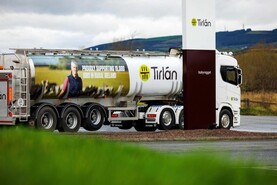An increase in the minimum claim size for farm payments from 3ha to 5ha looks likely to be shelved after the move was opposed by MLAs on the Stormont Agriculture Committee.
Back in March 2022, former Agriculture Mnister Edwin Poots decided to increase the threshold to 5ha for area based payments and this change was due to take effect in 2025. Approximately 1,400 farm businesses would be impacted, with the change freeing up around £2m for other farm support schemes.
However, at last Thursday’s committee meeting it became clear that there is still the potential to revert back to the current 3ha minimum claim. “This [5ha minimum claim] is still our planning assumption. Minister Muir has not yet made that decision. He’s very open to hearing your views” said Dr Rosemary Agnew from DAERA.
She argued that very small farm businesses generally have other sources of income and less need for a “safety net payment” by way of the new Farm Sustainability Payment (FSP), the replacement for the Basic Payment Scheme (BPS).
They could also acquire additional land and payment entitlements to ensure they remain eligible in 2025 or sell their existing entitlements before the entitlement trading window closes next year.
However, responding, West Tyrone MLA and committee deputy chair, Declan McAleer said the change would be unfair on people who work in other jobs and use this income to boost local farming and food production.
He also warned of an “unforeseen consequence” given that the main way to get planning in the countryside is to have an active farm business.
“The minister - he’s got our view now on the 3 / 5 ha issue as you asked us, so we’ll put it back in your court, but apart from that we seem to be fairly settled,” said committee chair, Tom Elliott.
Despite 2024 being the last year of the current Basic Payment Scheme (BPS), there will be no rebasing of payment entitlements (as happened in 2015), when the transition to a new Farm Sustainability Payment (FSP) begins in 2025, confirmed Dr Rosemary Agnew.
The following year, when the FSP is fully rolled out, new FSP entitlements will be allocated to each eligible farm business in the same number and unit value (as 2025), subject to any redirection of funding to other measures, she added.
However, a number of notable changes are still planned from 2026 onwards, including a progressive cap on the FSP starting at £60,000, to be phased in over a two-year period.
Analysis of payment data suggests around 260 farm businesses will be impacted by progressive capping and once fully implemented it will release £2.2m of funding that can go to other areas of farm support.
DAERA plans to revise rules around land eligibility from 2026, allowing ‘soft features’ such as rush, scrub and bracken to be used to claim payments.
The FSP in 2026 will also come with a new set of farm sustainability standards replacing cross compliance, as well as a new penalty regime.
But as well as these various standards related to the likes of cattle traceability and slurry spreading rules, there are also set to be various new conditions attached to the FSP.
These include participation in farm carbon footprinting and for cattle farms, participation in the ruminant genetics programme. Farmers will have to register for the programmes and “undergo training when it’s offered,” said Agnew.
“In due course, requirement to develop a nutrient management plan will also form part of the conditionalities, but this may not be possible in 2026,” she added.
The senior DAERA official argued that all these conditions have the aim of driving environmental improvement on farms and to track that progress it is necessary to obtain baseline information.
Ultimately it will be easier for DAERA to justify the farm support budget to the British Treasury if NI can show improved environmental sustainability on farms.
However, Agnew accepted there are a number of issues still to be resolved, including what happens if a farmer does not take up the offer of training in a relevant scheme and whether they will then automatically miss out on the new FSP.
“What we haven’t decided is, is it the first time it’s offered or is it the second time offered? The minister is considering all of that,” she said.
Agriculture Minister Andrew Muir is keen that DAERA looks at support for sheep, with officials currently assessing the strategic needs of the sector, Dr Rosemary Agnew told MLAs on the Stormont Agriculture committee last Thursday.
She said the Department will bring forward proposals for Minister Muir on the potential “levers he could deploy”, but warned that a headage scheme for sheep will mean less for beef and suckler cows.
In 2024, all entitlements were cut 9% in value to fund the new beef carbon reduction scheme and with a new suckler scheme due to start in 2025, it will mean 17% of the budget is going on headage schemes for beef.
Under World Trade Organisation rules, DAERA cannot go beyond this 17% figure, so a sheep payment would have to come from the same payment pot.
“It’s a lot of money going across a lot more numbers,” suggested Agnew.
She acknowledged that farmers in other sectors such as arable and dairy have also seen their payments cut, but longer term, DAERA is likely to take money out of the Farm Sustainability Payment (FSP) to fund other schemes, including Farming with Nature.
“Those would be available to all farmers, so there will be routes for all farmers to apply for different packages of support as they move forward. They are just not all coming on stream at the same time,” she said
Ahead of the 2015 CAP reform, local politicians agreed to a seven-year transition to a flat rate payment, meaning all entitlement values would move in equal steps to a NI average of approximately €330/ha by 2021.
However, with the CAP period running to 2019, it meant only five of the seven steps were ever completed. Since then, entitlement values have effectively remained locked in at 2019 levels.
Despite the disparity, there are no plans within DAERA to fully flatten out payments.
“We haven’t discussed that with Minister [Muir] yet, but at a working level we have just been leaving them as they are,” said Dr Rosemary Agnew.
New beef scheme
She pointed out that with 9% already taken off all payments to fund a new beef scheme in 2024 and 17% to be taken off in 2025 when a new suckler scheme is in place, it effectively reduces the range in entitlement values. That range will get even narrower when money is re-directed into new agri-environment schemes.






 This is a subscriber-only article
This is a subscriber-only article










SHARING OPTIONS: